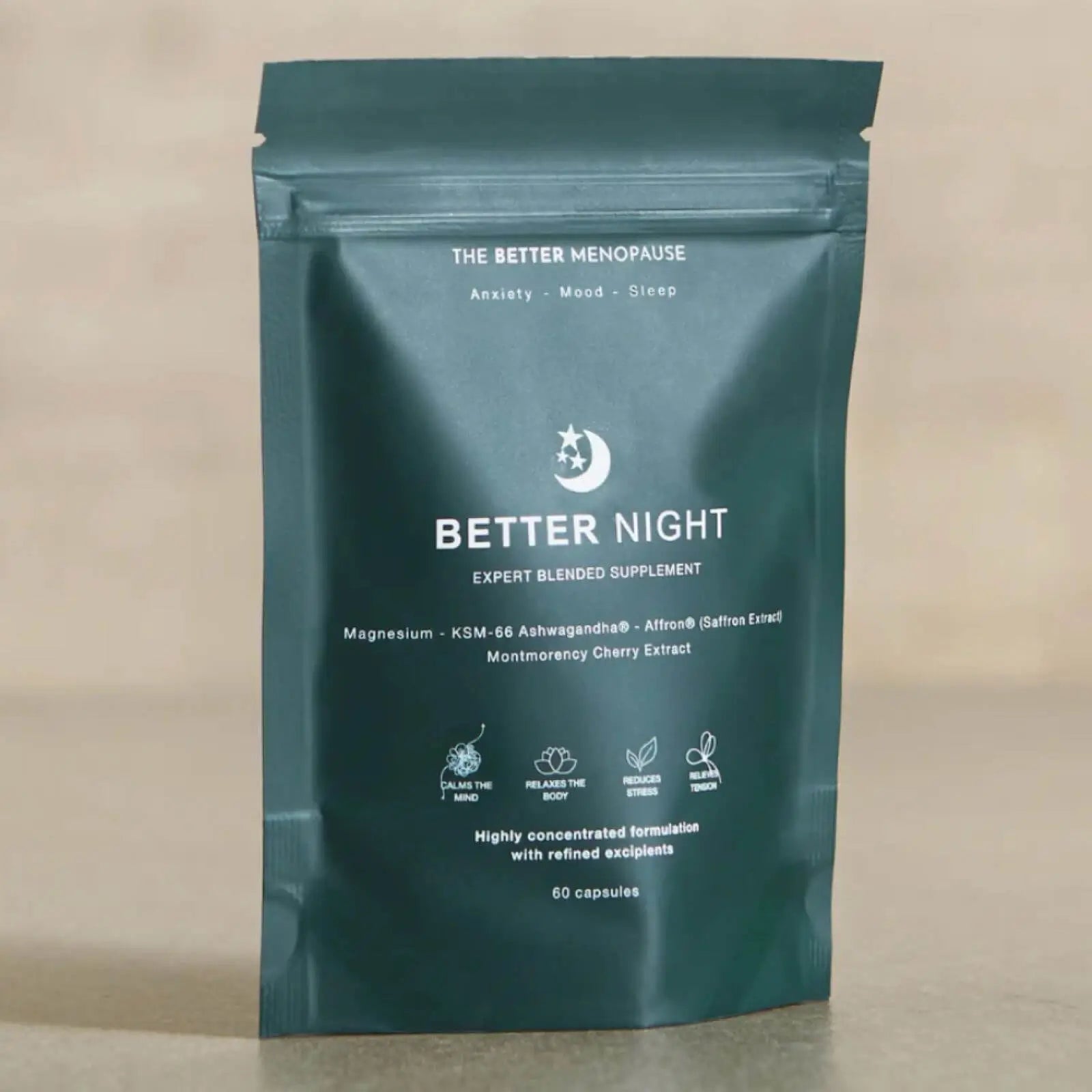
Sweet Dreams: Exploring the Nutrients That Promote Restful Sleep
Sleep is a cornerstone of good health and wellbeing, influencing everything from cognitive function to mood regulation. However, many factors in our lives can disrupt our sleep patterns, including dietary choices and gut health.
While lifestyle adjustments play a significant role in improving sleep, incorporating the right nutrients and beneficial probiotics into your diet can also play a vital part in promoting restful slumber. In this blog, we'll explore the world of sleep-promoting nutrients and the unique benefits of tailored probiotics, such as the Better Gut Probiotic from Better Menopause, to understand how they contribute to a good night's rest.
The role of probiotics in sleep health
Recent research has highlighted the profound connection between our gut health and sleep quality, underscoring the importance of a balanced gut microbiome. Probiotics, the beneficial bacteria found in certain foods and supplements, offer several benefits for improving sleep:
- Stress and anxiety reduction: By influencing the production and regulation of stress-related hormones like cortisol, probiotics can help mitigate stress and anxiety, common culprits of sleep disturbances, fostering a more relaxed state conducive to sleep.
- Enhancement of sleep quality: Certain strains of probiotics are known to improve the quality of sleep by producing and modulating neurotransmitters such as serotonin and gamma-aminobutyric acid (GABA), which are critical for regulating sleep patterns and achieving deep sleep phases.
- Regulation of circadian rhythms: The gut microbiome plays a crucial role in maintaining our body’s internal clock, or circadian rhythms, which dictate sleep-wake cycles. A balanced microbiome, supported by regular intake of probiotics, can help align these rhythms, thus improving sleep regularity and quality.
- Reduction of inflammation: Probiotics help reduce systemic inflammation, potentially alleviating sleep problems associated with inflammatory conditions.
Incorporating probiotic-rich foods into your diet is key to reaping these benefits. Sources include yoghurt, kefir, sauerkraut, kimchi, miso, tempeh, and pickles. For those navigating the challenges of menopause and seeking to improve their sleep through gut health, the Better Gut Probiotic , a supplement specifically formulated to support hormonal balance and improve overall digestive health, can be a valuable addition to your daily routine.
The Connection between nutrients, sleep, and menopause
Our dietary choices profoundly impact the quality of our sleep. Certain nutrients are involved in the production of sleep-regulating hormones and neurotransmitters, as well as in the regulation of circadian rhythms. Here are some key nutrients and their sources:
Melatonin and its Precursors: Melatonin, the hormone responsible for regulating sleep-wake cycles, is synthesized from tryptophan. Foods rich in tryptophan include turkey, chicken, dairy products, nuts, and seeds. Additionally, cherries, grapes, tomatoes, and oats can contribute to melatonin production.
Magnesium: This mineral is crucial for promoting relaxation and reducing stress, as it helps regulate neurotransmitters that calm the nervous system. Leafy greens, nuts, seeds, whole grains, and dark chocolate are excellent sources.
B Vitamins: Particularly B6, these vitamins are involved in the synthesis of neurotransmitters such as serotonin and dopamine, contributing to mood regulation and relaxation. Whole grains, fish, poultry, eggs, and leafy greens are rich in B vitamins.
Calcium and potassium: Calcium aids in converting tryptophan to melatonin, while potassium helps relax muscles and prevent nighttime cramps. Sources include dairy products, leafy greens, bananas, potatoes, and sweet potatoes.
Vitamin D and Omega-3 Fatty Acids: Adequate levels of vitamin D are associated with better sleep quality, and omega-3s are linked to reduced inflammation and balanced neurotransmitter function. Fatty fish, fortified dairy products, walnuts, flaxseeds, and chia seeds are good sources.
Sleep is a complex process influenced by numerous factors, including diet and gut health. Incorporating nutrient-rich foods and a good quality probiotic into your diet and supplement routine can provide a holistic approach to promoting better sleep.
While individual responses may vary, paying attention to nutrients that support relaxation, neurotransmitter balance, and melatonin production, alongside maintaining a healthy gut microbiome, can contribute to more restful nights and improved overall wellbeing.



